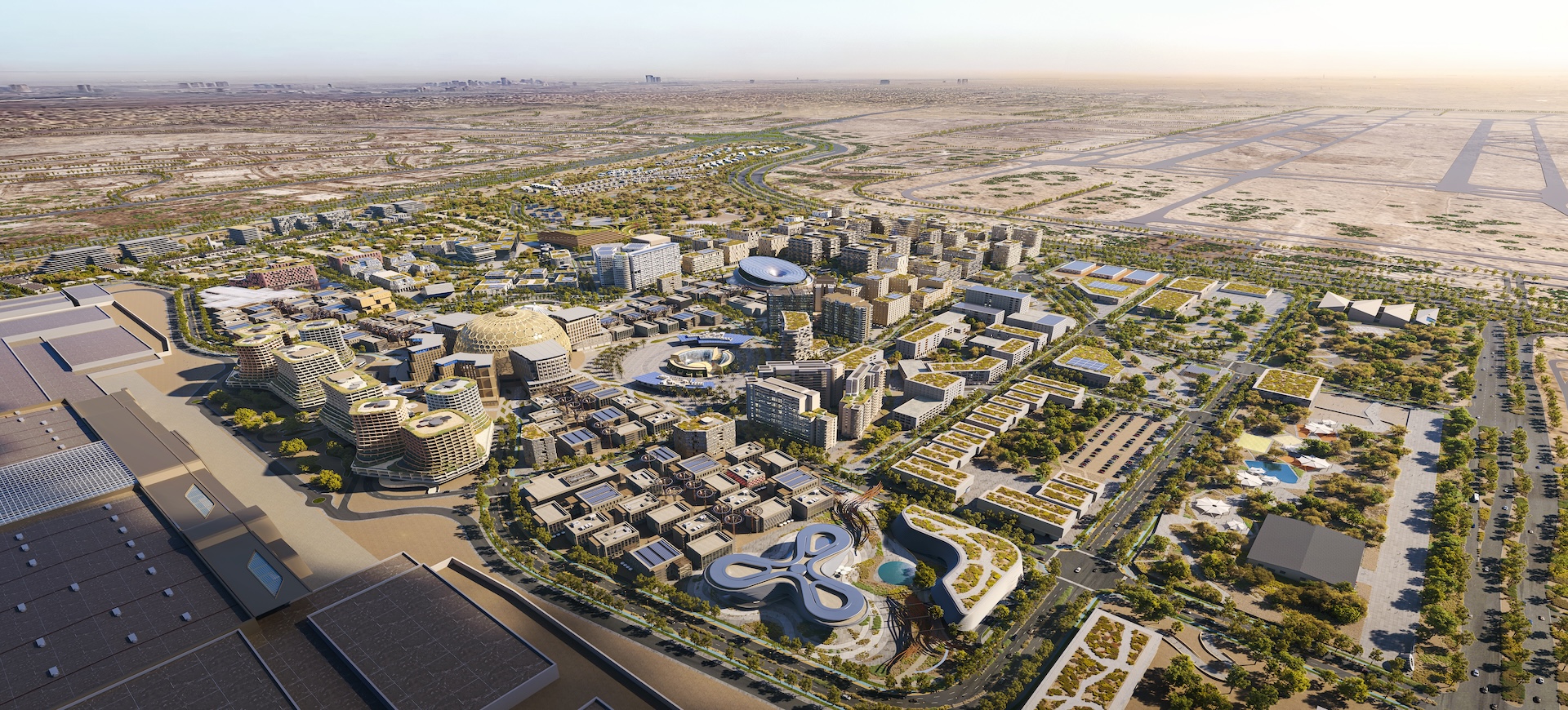ADVOCACY Expo City Dubai: a vision for the future
Expo City Dubai, the legacy site of Expo 2020, aims to foster sustainable growth and innovation, positioning the city as a global hub for trade, technology and events
Expo City Dubai, the site of Expo 2020 and the United Nations’ 28th Conference of the Parties, has a comprehensive master plan aimed at fostering sustainable growth and enhancing Dubai’s role as a global hub. This ambitious plan offers new opportunities for businesses, investors and residents, positioning Dubai as a centre for international trade and innovation.
Strategic location and economic potential
Situated next to Al Maktoum International Airport, which is set to become the world’s largest, and within the logistics corridor connecting to Jebel Ali Port, Expo City Dubai is strategically placed to facilitate global trade. The master plan highlights several key growth sectors, including trade and logistics, technology and innovation, and events. It will offer office space and the opportunity to purchase residential property in the rapidly developing Dubai South area.
A hub for innovation and community
Covering 3.5 square kilometres, Expo City Dubai will create a vibrant community of entrepreneurs, investors, educators and students, balancing residential, commercial and recreational spaces. The city will retain the architectural elements of Expo 2020 while aiming for new benchmarks in sustainable urban development.
Key components of this development include the new global headquarters for DP World and the Dubai Exhibition Centre, which is set to become the largest purpose-built indoor events and exhibitions venue in the region following a AED 10 billion expansion.
Commitment to sustainability
Sustainability is at the heart of Expo City Dubai’s master plan, with key performance indicators in areas including biodiversity, economic growth, energy use and wellness. The city aims to maintain its net zero targets by 2050, focusing on a balanced approach to human needs and environmental stewardship.
The city will be divided into five districts, featuring residential areas, office spaces, green zones and event venues. These will be connected by a smart transportation system and will include daily amenities such as healthcare facilities, a school, sports and wellness centres, retail outlets, and dining options. Expo City Dubai is projected to house around 35,000 residents and 40,000 professionals.
Site-wide smart technology, utilising sensors and smart metering tools, will monitor the consumption of power and water, and the generation of waste. Smart energy-saving appliances have also been integrated within residential units. Across the site, passive design strategies such as water features, shading structures, green roofs, trees and landscaping, along with the use of lighter coloured materials, will help reduce heat.
Global business presence
Several international businesses and industry leaders, including DP World, Emirates Group, Siemens Energy and Terminus, have already established operations in Expo City’s free zone. The master plan, endorsed by His Highness Sheikh Mohammed bin Rashid Al Maktoum, supports the Dubai Economic Agenda, which aims to double the emirate’s economy by 2033.
Expo City Dubai is also part of the Dubai 2040 Urban Master Plan, which focuses on sustainable urban development, vibrant communities and increased green spaces.
At its core, Expo City Dubai is a model for the future of sustainable living, rooted in the belief that collaboration can propel progress. As it evolves, we hope to see it become a smart city for the future.












